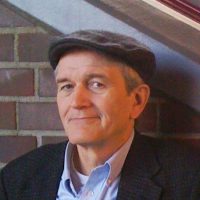Pipe Dream? The Nord Stream 2 pipeline project is in danger of being derail

Thomas O'Donnell
Hertie School of Governance
Thomas O’Donnell was a DAAD/AICGS Research Fellow in April and May 2015. He is an academic, analyst, and consultant with expertise in the global energy system and international relations. At AICGS, his focus is “U.S. Expert Perspectives on German Energy Vulnerabilities.” Dr. O’Donnell’s teaching and research have encompassed the EU and Russia, Latin America, the Middle East, China, and the USA. His PhD is in nuclear physics from The University of Michigan at Ann Arbor; for the past 15 years he has primarily taught post-graduate international relations and development with a focus on energy and natural resource issues, including at The University of Michigan, The Ohio State University, at The New School University’s JJ Studley Graduate Program in International Affairs (NYC), and at Freie Universität’s JFK Institute (Berlin). At his blog, the GlobalBarrel.com, he follows issues of energy and international affairs, and he also writes frequently for the IP Journal (Berlin), Americas Quarterly (NYC), and Petroguía (Caracas).
Throughout 2008-09, Dr. O’Donnell was a U.S. Fulbright Scholar and Visiting Professor in Caracas at the Center for the Study of Development (CENDES) of the Central University of Venezuela (UCV). He is a Senior Analyst at Wikistrat and consults with various other geopolitical, business-intelligence, and advisory firms. Before doing his PhD, Dr. O’Donnell spent a decade working in U.S. industry, gaining technical experience in automobile manufacturing, railway operations, large-scale HVAC, and in power generation. He has also worked as a radiation safety and health-physics officer at a research nuclear reactor and in medical and other settings. In experimental nuclear physics, he conducted basic research at several particle-accelerator and national laboratory facilities in the U.S., Japan, and elsewhere; and is author or co-author on about 40 peer-reviewed scientific papers. Since 2012, he has lived in Berlin with his wife and youngest children. He speaks English, Spanish, and functional German.
The proposed Nord Stream 2 pipeline project has bitterly pitted European states that back the project, including Germany, the Netherlands, Austria, and France, against project opponents, including Ukraine, Poland, and other former Soviet-bloc states. The project aims to double the capacity of the existing huge, 55-billion-cubic-meter-per-year Nord Stream 1 pipeline, running in parallel to it under the Baltic Sea from near St. Petersburg in Russia directly to Greifswald in Germany.
This dispute has exposed two very different views of Gazprom, Russia’s state-owned gas-export monopoly, and of Vladimir Putin’s Russia itself – one side sees it as a “necessary” and “reliable” energy supplier, the other a dangerous and manipulative adversary. This dispute is but one more collision inflicting lasting harm on the European Project.
The latest row involves a ruling in late July by the Polish Office of Competition and Consumer Protection (Urzed Ochrony Konkurencji i Konsumentow, or UOKiK) rejecting an application by five private western European energy firms proposing to partner with Gazprom to build and operate Nord Stream 2. The firms are Germany’s E.ON (soon to be Uniper) and Wintershall, Austria’s OMV, Anglo-Dutch Shell, and France’s Engie.
Shortly before the Polish announcement, the five companies agreed to withdraw their association proposal to avoid UOKiK initiating a legal process against them. The commission’s president, Marek Niechcial, declared categorically on August 12 that the Polish rejection was definitive, asserting “This will stop the [Nord Stream 2] deal.” The five firms have nevertheless made it clear they are seeking a strategy to work around the decision, and expect to proceed as planned. Gazprom has said the same.
So why go through this proceeding in the first place? To understand these events better, I spoke with several experts and diplomats working on these matters in Moscow, Berlin, Washington, Paris, and Warsaw.
Continue reading at the Berlin Policy Journal.
Thomas O’Donnell was a DAAD/AGI Research Fellow in April and May 2015. He is an academic, analyst, and consultant with expertise in the global energy system and international relations.









